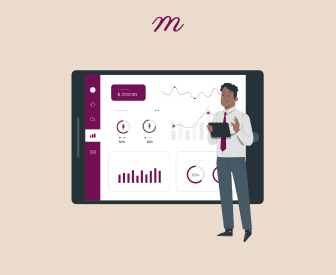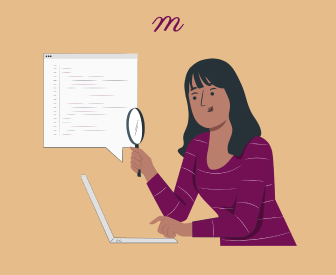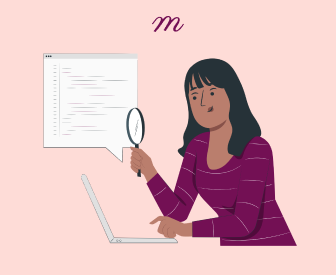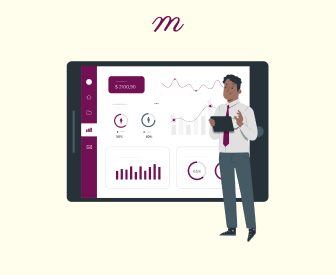ICD-10 Code for Bipolar Disorder

Have your progress notes written for you automatically
Yes, That’s Me!
In the wacky world of bipolar disorder, life’s a rollercoaster, and I’m the enthusiastic (and occasionally terrified) rider! One day, I’m soaring through the skies, convinced I can conquer the world with my brilliant ideas – I even tried to launch a business selling glow-in-the-dark socks for fish (don’t ask). But then, faster than you can say “manic episode,” I’m sinking into a pit ofdespair. It’s like living in a sitcom where the script changes every other scene, and I’ve gotta admit, it makes life quite fascinating! So, if you ever catch me at the grocery store stocking up on ice cream and hot sauce during a depressive episode, just know that I’m preparing for the bipolar buffet of emotions life serves up!
Within the U.S. healthcare system’s ICD-10-CM coding (effective October 2023), F31.9 serves as a specific billable code. It signifies a diagnosis of Bipolar Disorder, Unspecified. This code is crucial for reimbursement purposes. Remember, international versions of ICD-10 may use different codes for this diagnosis.
Bipolar Disorder, What Are We Talking About?
Bipolar disorder, often referred to as manic-depressive illness or manic depression, is a complex and chronic mental health condition characterized by extreme fluctuations in mood and energy levels. People with bipolar disorder experience intense emotional highs, known as manic or hypomanic episodes, and profound lows, which manifest as depressive episodes.
During manic episodes, individuals may exhibit heightened levels of energy, creativity, and enthusiasm, often accompanied by impaired judgment and impulsivity.
Conversely, depressive episodes are marked by overwhelming sadness, fatigue, loss of interest in activities, and a sense of hopelessness.
Bipolar disorder exists on a spectrum, and its severity can vary from person to person. It can significantly impact one’s daily life, relationships, and overall functioning, making it essential for individuals to seek proper diagnosis and treatment.
Feeling Overwhelmed? No Worries, Let’s Dig Deeper!
Bipolar and related disorders encompass a spectrum of psychiatric conditions, each presenting distinctive features and manifestations as per the following:
- Bipolar I Disorder: This condition is characterized by the occurrence of discrete mood episodes, with one or more instances of manic episodes. Manic episodes are marked by an elevated, expansive, or irritable mood, often accompanied by increased energy, impulsivity, and a reduced need for sleep. To elaborate, someone in a state of mania may exhibit marked reductions in their need for sleep, such as feeling refreshed after only a few hours of rest. Add to that, they may manifest inflated self-esteem or grandiose beliefs, and an escalation in purposeful actions, like initiating new projects in both professional and personal domains, among other symptoms. The presence of these manic episodes is the hallmark of Bipolar I Disorder.
- Bipolar II Disorder: In contrast to Bipolar I Disorder, Bipolar II Disorder is characterized by the presence of hypomanic episodes instead of full-blown manic episodes. Hypomania involves a milder form of elevated mood and increased energy but does not reach the severity of mania. Individuals with Bipolar II Disorder typically experience both hypomanic episodes and depressive episodes. I guess by now hypomanic episodes should be clear, but what about depressive ones? Well, episodes of depression are typically marked by feelings of sadness or a diminished interest in activities, accompanied by symptoms such as fatigue, challenges with concentration, and disruptions in sleep patterns or appetite. Hope this clarifies any confusion.
- Cyclothymic Disorder: Cyclothymic Disorder is a milder form of bipolar disorder characterized by chronic mood instability. It involves the presence of periods of hypomanic symptoms that do not meet the full diagnostic criteria for hypomania or mania, as well as depressive symptoms that do not meet the criteria for a major depressive episode. These mood fluctuations persist over an extended period, typically lasting for at least two years in adults and one year in adolescents.
How to differentiate between the 3, you might be pondering. Well, a history of a major depressive episode is not a mandatory prerequisite for a bipolar I diagnosis (though it is commonly observed in the majority of individuals with bipolar I disorder). In the case of bipolar II disorder, however, individuals must have a documented history of at least one major depressive episode. In addition, to receive a bipolar II diagnosis, individuals must have experienced hypomanic episodes characterized by manic symptoms persisting for at least four days, which are not severe enough to result in significant impairment or necessitate hospitalization, and are not accompanied by psychotic features.
Lastly, individuals with cyclothymic disorder frequently exhibit recurring periods of hypomanic and depressive symptoms that do not meet the criteria for full-blown hypomanic and depressive episodes, respectively.
ICD 10 Codes
NEVER dismiss ICD-10 codes as an arcane facet of the healthcare and insurance world! Those play a pivotal role in ensuring the seamless operation of these systems and, more importantly, in safeguarding the quality of care you receive.
Back to our theme, bipolar disorders are categorized in the International Classification of Diseases, 10th Revision (ICD-10) under specific codes. The ICD-10 codes for bipolar disorders are as follows:
| Condition | ICD-10-CM Codes |
|---|---|
| Manic episode | F30 (manic episode) |
| F30.1 (manic episode without psychotic symptoms…) | |
| F30.10 (unspecified) | |
| F30.11 (mild) | |
| F30.12 (moderate) | |
| F30.13 (severe, without psychotic symptoms) | |
| F30.2 (manic episode, severe with psychotic symptoms) | |
| F30.3 (manic episode in partial remission) | |
| F30.4 (manic episode in full remission) | |
| F30.8 (other manic episodes) | |
| F30.9 (manic episode, unspecified) |
| Condition | ICD-10-CM Codes |
|---|---|
| Bipolar disorder | F31 (bipolar disorder) |
| F31.0 (bipolar disorder, current episode hypomanic) | |
| F31.1 (bipolar disorder, current episode manic without psychotic features…) | |
| ***F31.10 (unspecified) | |
| ***F31.11 (mild) | |
| ***F31.12 (moderate) | |
| ***F31.13 (severe) | |
| F31.2 (bipolar disorder, current episode manic, severe with psychotic features) | |
| F31.3 (bipolar disorder, current episode depressed, mild, or moderate severity…) | |
| ***F31.30 (unspecified) | |
| ***F31.31 (mild) | |
| ***F31.32 (moderate) | |
| F31.4 (bipolar disorder, current episode depressed, severe, without psychotic features) | |
| F31.5 (bipolar disorder, current episode depressed, severe, with psychotic features) | |
| F31.6 (bipolar disorder, current episode, mixed…) | |
| ***F31.60 (unspecified) | |
| ***F31.61 (mild) | |
| ***F31.62 (moderate) | |
| ***F31.63 (severe, without psychotic features) | |
| ***F31.64 (severe, with psychotic features) | |
| F31.7 (bipolar disorder, currently in remission…) | |
| ***F31.70 (most recent episode unspecified) | |
| ***F31.71 (in partial remission, most recent episode hypomanic) | |
| ***F31.72 (in full remission, most recent episode hypomanic) | |
| ***F31.73 (in partial remission, most recent episode manic) | |
| ***F31.74 (in full remission, most recent episode manic) | |
| ***F31.75 (in partial remission, most recent episode depressed) | |
| ***F31.76 (in full remission, most recent episode depressed) | |
| ***F31.77 (in partial remission, most recent episode mixed) | |
| ***F31.78 (in full remission, most recent episode mixed) | |
| F31.8 (other bipolar disorders) | |
| ***F31.81 (bipolar II disorder) | |
| ***F31.89 (other bipolar disorder) | |
| F31.9 (bipolar disorder, unspecified) |
| Condition | ICD-10-CM Codes |
|---|---|
| Cyclothymia | F34.0 (cyclothymic disorder) |
A Word from Mentalyc
Always remember: knowledge wields immense power. At Mentalyc, we share a profound appreciation for the crucial role that ICD-10 codes fulfill within your practice as mental health professionals. Our central mission revolves around equipping you with the requisite tools to deliver superior care to individuals grappling with bipolar disorders. Beyond the mere administration of paperwork, embracing these codes signifies your unwavering support for individuals embarking on a path toward stability and well-being.
With the right codes readily available in your hands, you possess the means to ensure transformative care for your clients.
Allow Mentalyc to be your steadfast ally in this vital mission, as we collaboratively forge a future that is not only brighter but also more compassionate for the field of mental health care.
References:
- American Psychiatric Association. (2013).Diagnostic and statistical manual of mental disorders (5th ed.). Washington, DC: American Psychiatric Association.









